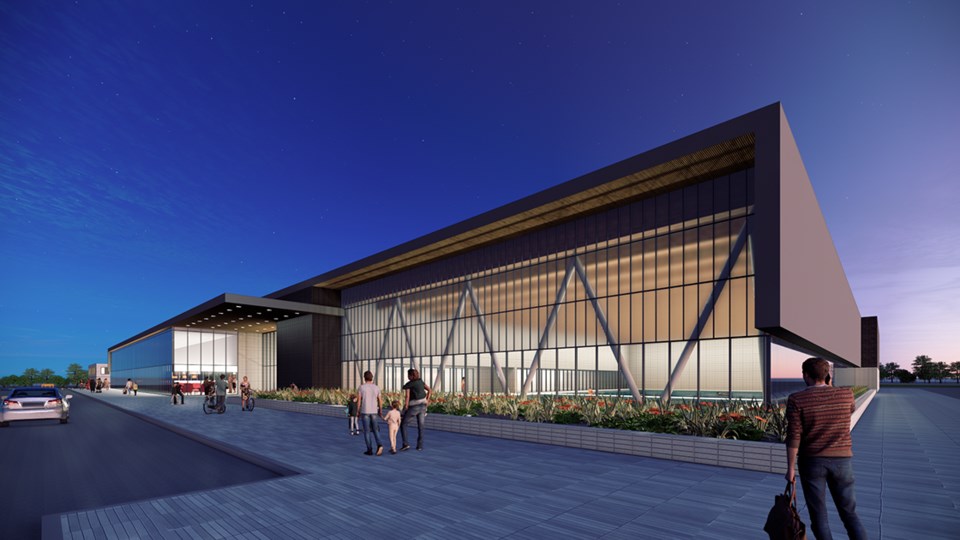For the first time the City of Cambridge is ready to adopt a set of policies around sponsorship, advertising and naming with the hope it will generate revenue to help pay for large-scale capital projects.
With the southeast Cambridge recreation complex, Fountain Street soccer fields and expansion of the Preston Auditorium all expected to be built within the next four years, the city hired a company called Interkom last fall to come up with a policy framework for its new advertising, sponsorship and naming program.
Interkom estimates that all three projects could generate upwards of $10 million for the city from naming rights alone.
In a report coming to council next week, staff is proposing to spend $150,000 to hire a consultant to manage the process of finding naming partners, advertisers and sponsors for its three upcoming projects as well as existing facilities with naming potential.
“Cambridge is in a unique situation with these large projects coming online in and around a similar time and within a few years of each other,” the staff report reads. “Staff is of the opinion that all naming opportunities must be leveraged for these projects to be of maximum benefit.”
Older facilities with naming and sponsorship potential could bring in between $500,000-$750,000, the report states.
The report also seeks approval for the policies developed by Interkom that ensure all advertising and sponsorship does not adversely affect either public safety or the city's image, and reflects corporate and community values.
The sponsorship policy would apply to private sector contributions to events, programs and festivals and includes title sponsorship with a brand name.
For advertising, the policy applies to things like rink billboards or bus wraps, which the city would sell at a predetermined rate for a period of time to promote a company’s products or services.
Naming policies are used to govern the names placed on buildings, rooms, stadiums or other physical assets, and could include philanthropic donations by an individual or family in exchange for putting their name on a building as its legacy.
Interkom investigated existing naming policies at several municipalities, including the cities of Guelph, Kitchener, Waterloo and Oshawa, to determine best practices.
The benchmarking study found all of those cities benefited from the revenue the policies brought in, helping to pay for a portion of construction costs, recoup investments and provide a steady stream of long-term revenue.
Overall best practices include using a consultant to facilitate inbound inquiries and outbound solicitation, having designated staff manage all sponsorship and donation contracts, ensuring the city’s legal team can approve contracts and be flexible in structuring deals, and allow multi-year contracts for larger sponsorship opportunities.
The report recommends rate and fee schedules align with programs in similarly sized municipalities.
Other recommendations include the creation of a commemorative naming policy and development of a customer facing web page for marketing the program.
The report says it's important for council to understand the policies are "not just about revenue generation."
"They are a strategic marketing investment that provide benefit not only to the city, but to the investing partners."
Staff is recommending the policies be reviewed in three years.

.png;w=120;h=80;mode=crop)

